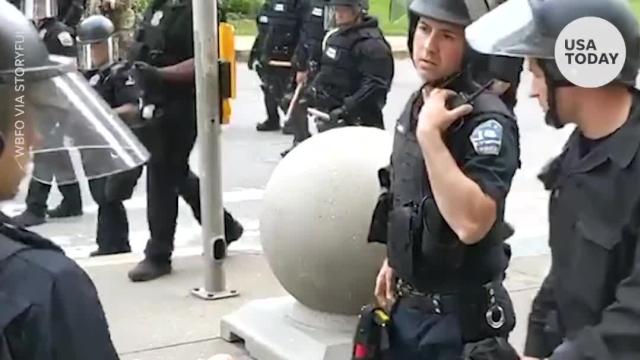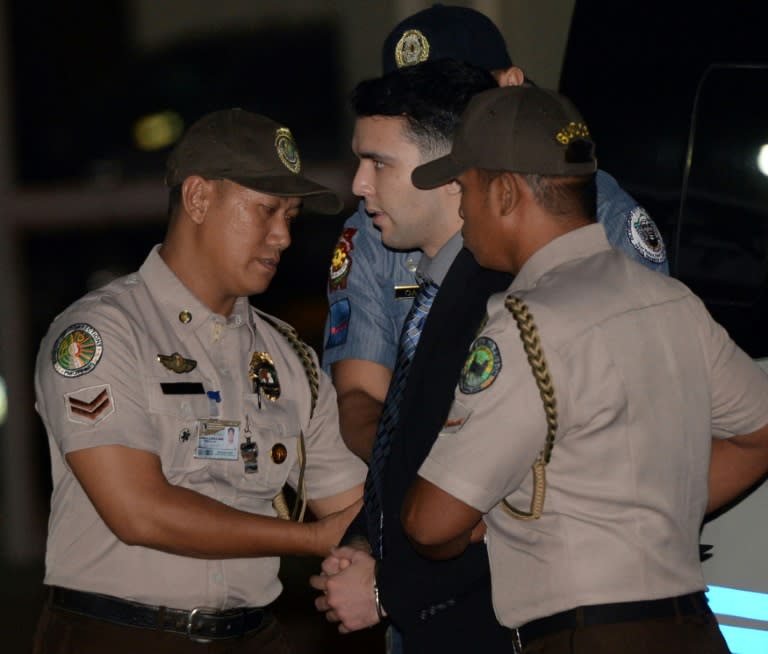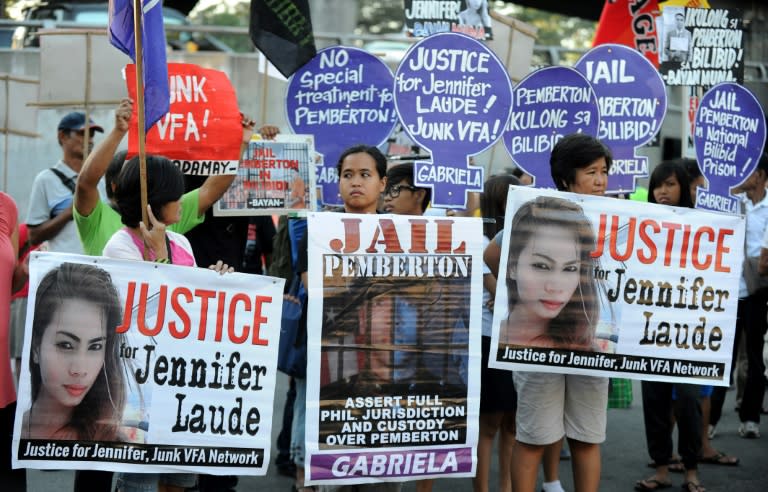FOR GEORGE FLOYD CHOKING WAS FATAL
FOR TRUMP IT MEANS YOU'RE A LOSER
Jeremy Blum, HuffPost•September 2, 2020
At a Tuesday roundtable with local officials in Kenosha, Wisconsin, President Donald Trump invited all present to remove their face masks and repeatedly answered questions that reporters asked of the only Black attendees.
“If you feel more comfortable, if you’ll say a couple of words, you might want to take the masks off, otherwise you can leave them on,” the president said at the start of the event. “Either way you want.”
Trump then pointed to one of the members in attendance, saying, “Look how fast you took that off.”
The indoor roundtable, where attendees sat at a distance from the president but within close proximity of each other, was focused on community safety in Kenosha. Trump used the meeting to condemn protests in the city that began after Jacob Blake, a now-paralyzed 29-year-old Black man, was shot seven times in the back by a white police officer on Aug. 23.-
The president also dismissed concerns about police brutality, arguing that “bad apples” on the police force would be “taken care of through the system” and that law enforcement needed to be supported.
“You know, the sad thing is you can do 10,000 great jobs as a policeman or a policewoman,” Trump said. “You can do an incredible job for years, and then you have one bad apple or something happens that’s bad. And that’s the nightly news for three weeks. That’s all they talk about.”
When a reporter directed questions about systemic racism in policing to James and Sharon Ward ― the only Black attendees and the pastors for Julia Jackson, Blake’s mother ― Trump repeatedly cut in to answer for them.“I think the police do an incredible job, and I think you do have some bad apples,” Trump said. “I think you’d agree every once in a while you’ll see something. And you do have the other situation, too, where they’re under this tremendous pressure, and they don’t handle it well. They call it ‘choking,’ and it happens.”
Trump previously referred to “bad apples” who “choke” under pressure in an interview with Fox News’ Laura Ingraham on Monday, when he bizarrely compared police officers to golfers who miss easy putts.
See the entirety of the roundtable below, courtesy of NBC:
At a Tuesday roundtable with local officials in Kenosha, Wisconsin, President Donald Trump invited all present to remove their face masks and repeatedly answered questions that reporters asked of the only Black attendees.
“If you feel more comfortable, if you’ll say a couple of words, you might want to take the masks off, otherwise you can leave them on,” the president said at the start of the event. “Either way you want.”
Trump then pointed to one of the members in attendance, saying, “Look how fast you took that off.”
The indoor roundtable, where attendees sat at a distance from the president but within close proximity of each other, was focused on community safety in Kenosha. Trump used the meeting to condemn protests in the city that began after Jacob Blake, a now-paralyzed 29-year-old Black man, was shot seven times in the back by a white police officer on Aug. 23.-
The president also dismissed concerns about police brutality, arguing that “bad apples” on the police force would be “taken care of through the system” and that law enforcement needed to be supported.
“You know, the sad thing is you can do 10,000 great jobs as a policeman or a policewoman,” Trump said. “You can do an incredible job for years, and then you have one bad apple or something happens that’s bad. And that’s the nightly news for three weeks. That’s all they talk about.”
When a reporter directed questions about systemic racism in policing to James and Sharon Ward ― the only Black attendees and the pastors for Julia Jackson, Blake’s mother ― Trump repeatedly cut in to answer for them.“I think the police do an incredible job, and I think you do have some bad apples,” Trump said. “I think you’d agree every once in a while you’ll see something. And you do have the other situation, too, where they’re under this tremendous pressure, and they don’t handle it well. They call it ‘choking,’ and it happens.”
Trump previously referred to “bad apples” who “choke” under pressure in an interview with Fox News’ Laura Ingraham on Monday, when he bizarrely compared police officers to golfers who miss easy putts.
See the entirety of the roundtable below, courtesy of NBC:












